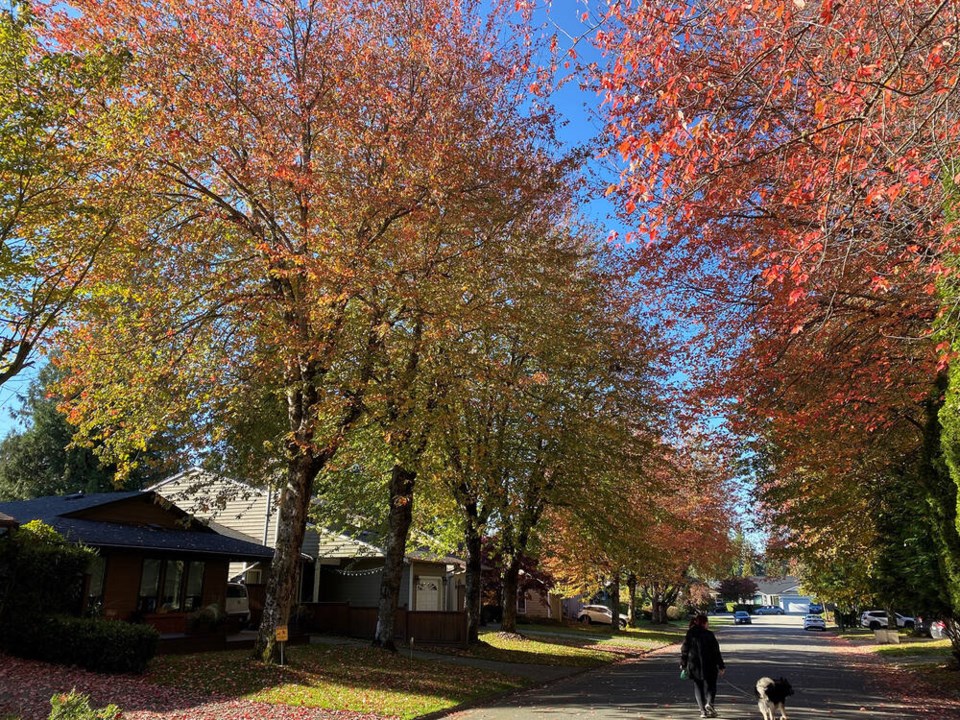The number of tree removal applications to the City of Delta dropped significantly last year.
That’s according to a recent staff update on Delta’s Urban Forest Strategy, which notes the number of tree removal permits increased in 2020 and 2021, possibly in response to the public consultation process for the new tree bylaw. However, in 2022, when the new tree bylaw was in effect, tree removal permits substantially decreased to 427 permits issued, compared to 1,181 permits in 2021.
The decrease may be attributed to higher tree removal permit fees and increased tree replacement requirements, particularly for large diameter trees, the report notes, adding that the internal Urban Forest Working Group has improved the tracking process for tree removals and tree plantings, allowing for faster and more accurate data reporting.
In early 2024, staff will bring forward a report to council proposed amendments to the bylaw that will be aimed at streamlining and simplifying the tree removal permitting process, while continuing to protect the urban forest.
On another front, the city is planning additional tree giveaways with a target of 500 per year.
The report notes that tree giveaway program for the public is significantly higher than the annual private tree planting goal of 100 trees per year in the forest strategy.
This June, a public works open house was held, aimed at promoting tree planting on private property. It was well received with all 100 trees offered being claimed by residents within the first two hours.
Meanwhile, the Trees for Tomorrow program has been promoted by the city recently, which has increased the program’s popularity.
That program sees the city plant trees on city-owned frontages at no cost to private property owners.
Staff are also working toward the “aspirational” tree planting goals laid out in the Urban Forest Strategy.
The report notes a total of 874 caliper-sized trees and 80 tree seedlings were planted by the city in 2022 and staff are collaborating with the Delta School District to plant 320 trees on school properties this fall. However, in recent years, while the tree planting targets have generally been met for plantings on streets and boulevards, it is becoming increasingly challenging in finding available space and support of adjoining residents for plantings.
Efforts to find planting opportunities on other sites such as parks and schools will continue, while opportunities to plant on provincial highways have been explored with the Ministry of Transportation and Infrastructure but acceptable sites were not found, the report adds.



